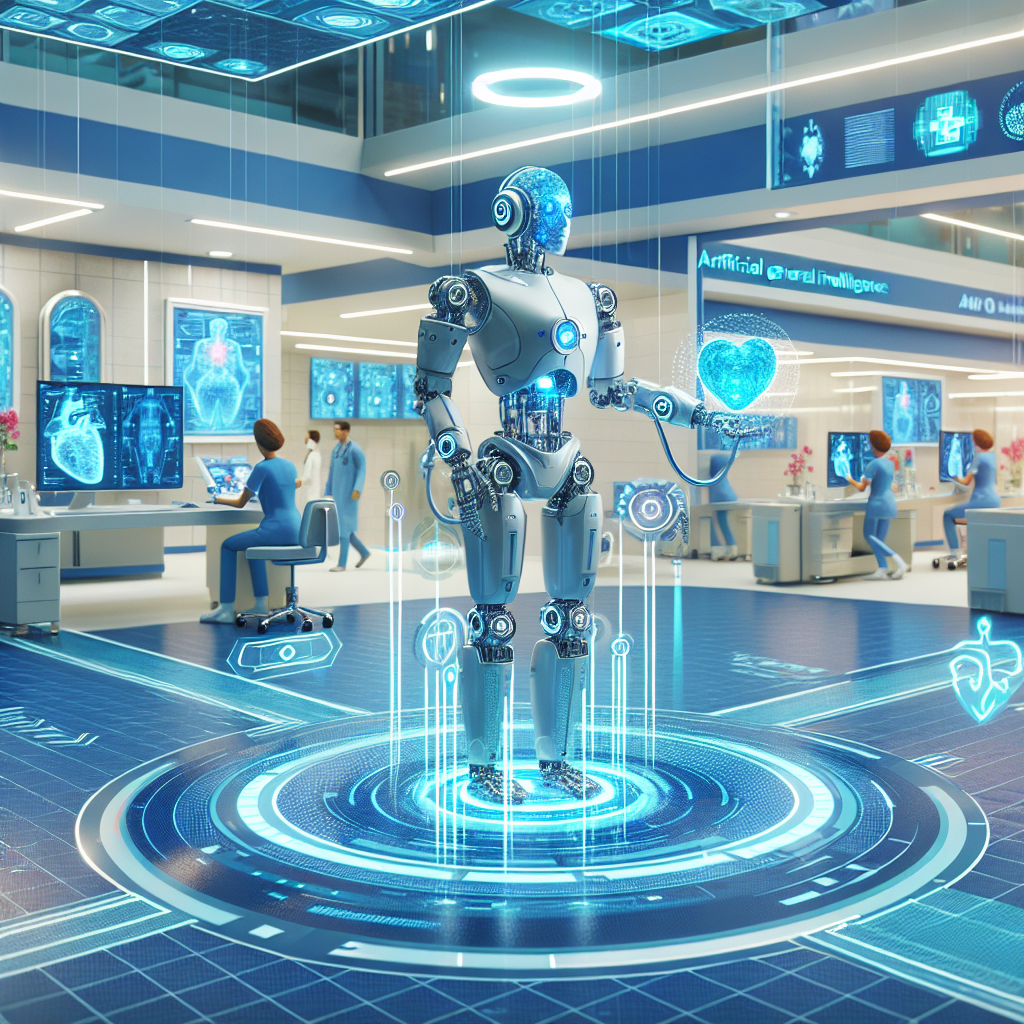Artificial General Intelligence (AGI) is a rapidly advancing field that holds immense potential to revolutionize various industries, including healthcare. AGI refers to a type of artificial intelligence that possesses human-like cognitive abilities, enabling it to perform a wide range of tasks that typically require human intelligence, such as reasoning, problem-solving, and learning from experience. In the realm of healthcare, AGI has the potential to transform medical diagnosis and treatment, leading to more accurate and efficient patient care.
AGI in Healthcare: Transforming Medical Diagnosis
One of the most significant applications of AGI in healthcare is in medical diagnosis. AGI-powered systems have the ability to analyze vast amounts of patient data, including medical records, lab results, imaging studies, and genetic information, to identify patterns and make accurate diagnoses. These systems can also take into account a patient’s medical history, lifestyle factors, and environmental influences to provide personalized treatment recommendations.
AGI-powered diagnostic systems have the potential to significantly reduce diagnostic errors and improve patient outcomes. Studies have shown that diagnostic errors are a leading cause of patient harm, with an estimated 12 million Americans being misdiagnosed each year. AGI-powered systems can help clinicians make more accurate and timely diagnoses, leading to earlier intervention and better treatment outcomes.
AGI in Healthcare: Enhancing Treatment Planning
In addition to improving medical diagnosis, AGI can also play a crucial role in treatment planning. AGI-powered systems can analyze vast amounts of medical literature, clinical guidelines, and treatment protocols to provide evidence-based treatment recommendations. These systems can also take into account a patient’s individual characteristics, such as age, gender, and comorbidities, to tailor treatment plans to each patient’s unique needs.
AGI-powered treatment planning systems can help clinicians make more informed decisions about the most appropriate treatment options for their patients. By providing personalized treatment recommendations based on the latest medical evidence, AGI can help improve patient outcomes and reduce healthcare costs.
AGI in Healthcare: Revolutionizing Medical Imaging
Another area where AGI is making significant strides in healthcare is in medical imaging. AGI-powered imaging systems have the ability to analyze medical images, such as X-rays, CT scans, and MRIs, to identify abnormalities and assist in diagnosis. These systems can also help radiologists interpret images more quickly and accurately, leading to faster diagnosis and treatment.
AGI-powered imaging systems can also help detect subtle abnormalities that may be missed by human radiologists, leading to earlier detection of diseases such as cancer. By improving the accuracy and efficiency of medical imaging, AGI can help clinicians provide better care to their patients and improve patient outcomes.
FAQs
Q: What are the potential benefits of using AGI in healthcare?
A: The potential benefits of using AGI in healthcare are numerous. AGI-powered systems can help improve medical diagnosis, treatment planning, and medical imaging, leading to more accurate and efficient patient care. AGI can also help reduce diagnostic errors, improve patient outcomes, and lower healthcare costs.
Q: Are there any risks associated with using AGI in healthcare?
A: While AGI holds immense potential to transform healthcare, there are also risks to consider. These risks include concerns about data privacy and security, potential biases in the algorithms used by AGI-powered systems, and the impact on the healthcare workforce. It is important for healthcare organizations to carefully consider these risks and implement appropriate safeguards to mitigate them.
Q: How can healthcare organizations implement AGI in their practices?
A: Healthcare organizations can implement AGI in their practices by partnering with technology companies that specialize in AGI development, investing in training and education for their staff, and conducting pilot projects to test the feasibility and effectiveness of AGI-powered systems. It is also important for healthcare organizations to collaborate with regulators, policymakers, and other stakeholders to ensure that AGI is implemented in a safe and ethical manner.
In conclusion, AGI holds immense potential to revolutionize healthcare by transforming medical diagnosis and treatment. AGI-powered systems have the ability to analyze vast amounts of patient data, provide personalized treatment recommendations, and improve the accuracy and efficiency of medical imaging. While there are risks to consider, healthcare organizations can harness the power of AGI to provide better care to their patients and improve patient outcomes. By carefully considering these risks and implementing appropriate safeguards, healthcare organizations can leverage AGI to usher in a new era of personalized and efficient healthcare.

